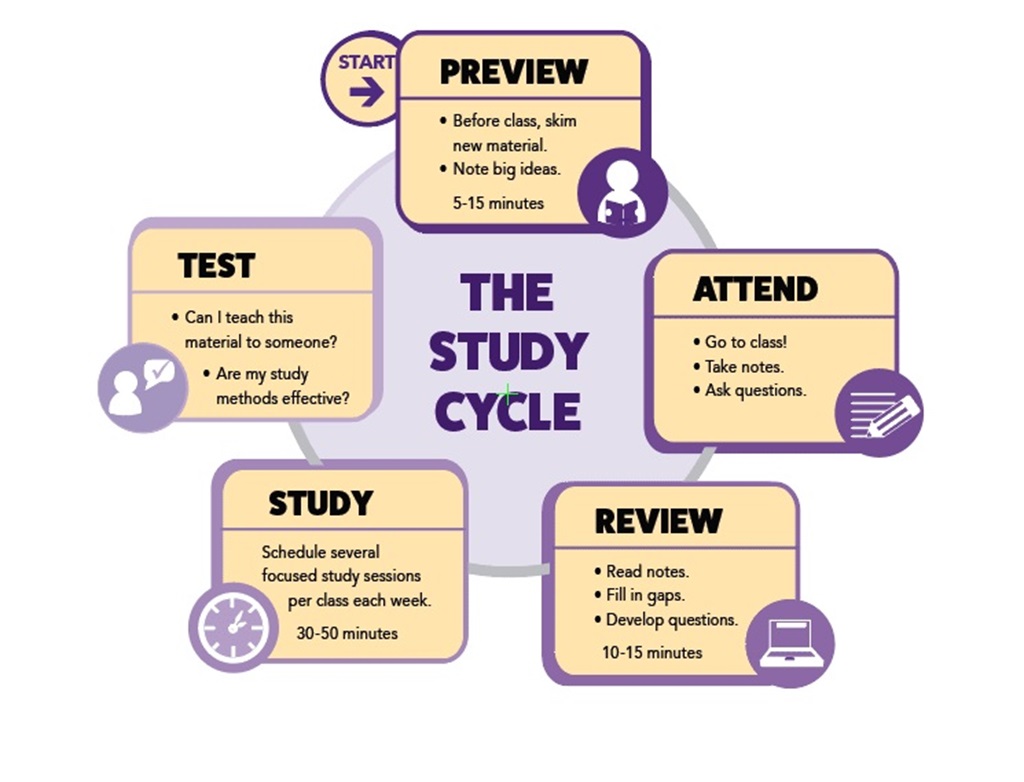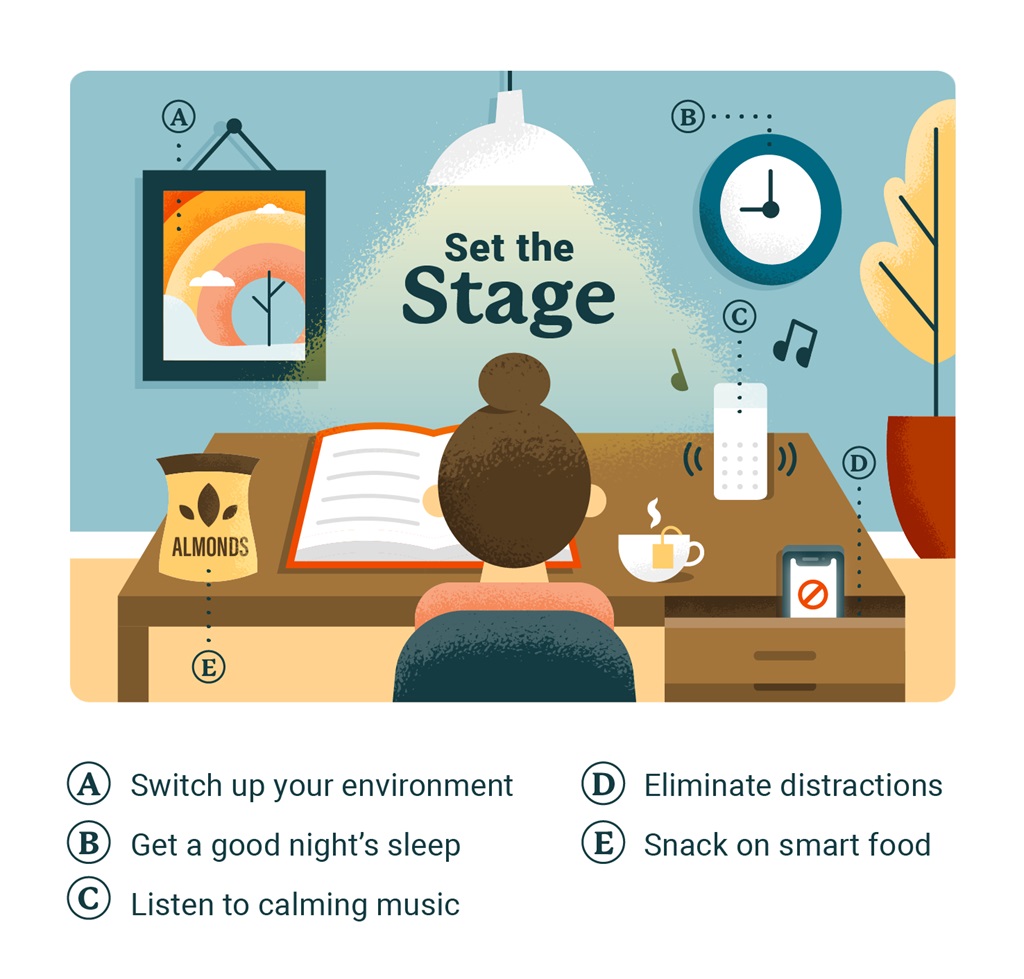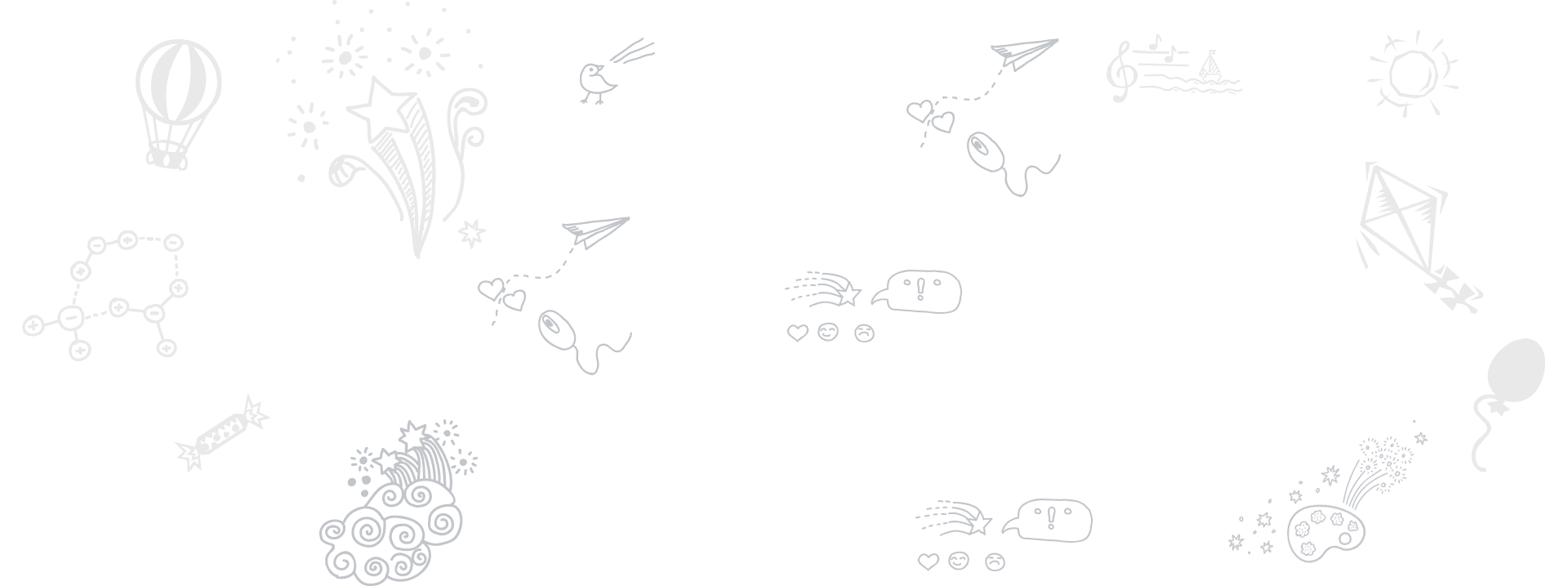
11 Feb What is the Best Study Method? Discover the Top Strategies
The best study method combines active recall, spaced repetition, and practice testing, as these techniques have enhanced knowledge retention and understanding. Education researchers have identified several effective study methods over the years. Active recall, which involves actively retrieving information from memory, has improved long-term retention. Spaced repetition, or distributed practice, consists of studying material over several sessions, leading to better memory consolidation—meanwhile, practice testing, such as taking quizzes or self-testing, reinforces learning.
Students can optimize their study habits and enhance their academic performance by integrating these strategies. Using methods that align with cognitive processes is essential to make learning more efficient and effective. With a focus on evidence-based techniques, students can develop study habits that lead to meaningful and long-lasting learning outcomes. Built on scientific research, these methods, showcased on resources like https://dldxedu.com/, offer a solid framework for successful studying and academic achievement. By adopting these proven techniques, students can tailor their learning experiences to their individual needs and preferences, maximizing their educational potential and fostering a deeper understanding of their studies.

Study Methods For Exams
Discovering the best study method for exams can make all the difference in your performance. Learn practical techniques such as active recall, flashcards, and practicing with past papers to optimize your study sessions.
Pomodoro Technique
The Pomodoro Technique is a popular time management method that involves breaking study sessions into intervals, usually 25 minutes long, separated by short breaks. The focused bursts of work can improve productivity and concentration.
Limitations Of Anki
While Anki is a widely used flashcard app, its limitations include a steep learning curve and the need for consistent use to maintain effectiveness. Users may also find it challenging to create high-quality flashcards.
Reading Notes
Reading and summarizing course materials can help reinforce understanding and retention. Reviewing the notes regularly assists in recalling information during exams.
Q Banks
Question banks provide practice questions and assessments that simulate exam conditions. This method aids in testing and reinforcing the understanding of concepts.
Active Recall Question Bank
Active recall involves actively retrieving information from memory, which enhances long-term retention. Integrating this method with question banks offers a robust study strategy.
Past Papers
Working through past exam papers gives students a sense of the exam format and types of questions. It also allows for the application of learned material to practical scenarios.
Re-watching Lectures
Reviewing recorded lectures can help reinforce understanding and grasp key concepts that may have been missed during the initial session.
Making Notes
Students can reinforce learning and create effective study materials for exam preparation by summarizing and organizing information into concise notes.
Study Methods For Students
Regarding studying, different students have different preferences. Some might excel with visual aids, while others benefit from auditory learning techniques. Here are some study methods popular among students:
Feynman Technique
The Feynman Technique involves teaching a concept to someone else. This reveals gaps in one’s understanding and helps deepen knowledge.
Exam Past Papers
Practicing exam past papers allows students to familiarize themselves with the exam format and types of questions, leading to better preparation.
You tube Videos
Engaging with educational YouTube videos provides a dynamic learning experience. They often simplify complex topics through visual and auditory aids.
Rote Learning
Rote learning involves the memorization of information through repetition, making it helpful in retaining factual knowledge.
Mind Maps
Creating mind maps visually organizes concepts, aiding in better understanding and memorizing information.
Studying With Friends
Studying with friends allows discussion and knowledge sharing, contributing to a deeper understanding of the subject.
Active Recall
Active recall involves retrieving information from memory, aiding in better retention and understanding of the material.
Pomodoro Technique
The Pomodoro Technique involves breaking study time into intervals with regular breaks, fostering better focus and productivity.
Method Of Loci
The Method of Loci uses spatial memory to associate information with specific locations, aiding in better retention and recall.
Flashcards
Using flashcards for quizzing and self-assessment helps in active recall and reinforces learning through repetition.
Evidence-based Study Methods
When it comes to studying, students employ numerous techniques to improve their learning outcomes. However, not all study methods are created equal. It is essential to rely on evidence-based study methods that effectively enhance understanding and retention of information. In this article, we will explore some of the most proven study methods, including the Harvard study method, that can help you optimize your learning experience. This approach, along with others like spaced repetition and active recall, is grounded in scientific research and has been shown to significantly boost academic performance by facilitating deeper comprehension and long-term memory of study materials. By incorporating these strategies into your study routine, you can achieve more efficient and effective learning outcomes.
Highlighting
One famous study method is highlighting, using a color marker to mark important information in textbooks or notes. While this method is commonly used, research shows that it may not be the most effective. Highlighting alone does not promote active engagement with the material and may lead to surface-level learning.
Re-reading
Re-reading is another commonly used study method in which you repeatedly review the same material. While this method may seem intuitive, research suggests it is less effective than other techniques. Re-reading can create a false familiarity with the material without promoting deep comprehension and retention.
Making Notes
Many students find taking notes while studying helpful. By summarizing information in your own words, you actively engage with the material and promote better understanding. However, it is essential to note that the effectiveness of note-taking depends on how it is done. Simply copying information verbatim may be less effective than actively processing and organizing the material.
Mnemonics
Mnemonic techniques involve creating associations or codes to aid in memory recall. This can be particularly helpful when trying to remember complex information or sequences. Mnemonics can take various forms, such as acronyms, visual imagery, or rhymes. Research suggests that mnemonics can enhance learning and retention by providing a memorable way to encode information.
Rote Learning
Rote learning involves memorizing information through repetition without necessarily understanding the underlying concepts. While this method may be effective for short-term memorization, it is not as beneficial for long-term retention and application of knowledge.
Practice Testing
Practice testing involves retrieving and applying learned information through quizzes or practice questions. This method is highly effective in strengthening memory and improving understanding. By actively recalling information, you engage with the material meaningfully, reinforcing learning and identifying knowledge gaps.
Interleaving
Interleaving is a study technique that involves alternating between different subjects or topics during a study session. This method helps to prevent “blocking,” where you become overly familiar with one subject and struggle to recall information later. By interweaving different topics, you promote better long-term retention and knowledge transfer.
Anki App
The ANKI app is a popular digital flashcard application that utilizes spaced repetition, a technique known to enhance memory retention. The app intelligently schedules flashcards based on your performance, optimizing your learning by focusing on areas that require more practice. Research has shown the effectiveness of spaced repetition in promoting long-term memory retention.
Knowledge-based Timetable
A knowledge-based timetable involves planning your study sessions based on understanding your strengths and weaknesses. You can tailor your study schedule to optimize your learning by allocating more time to challenging subjects or topics. This method ensures that you spend more time on areas that require improvement, leading to a more efficient and effective study experience.
When deciding on the best study method, it is essential to consider the evidence. While some methods may seem intuitive or familiar, specific techniques can significantly enhance learning outcomes. By incorporating evidence-based study methods into your routine, you can maximize your studying efforts and achieve better results.
Effective Study Techniques

Discover the most effective study techniques to improve your learning experience. From active recall and spaced practice to the Feynman Technique and mind maps, explore various methods to enhance your understanding and retention of information.
Proper study techniques can make all the difference when studying effectively. By employing these effective study methods, you can optimize your learning and retention, leading to better academic success. This article will explore some of the most effective study techniques to enhance understanding. Let’s dive in!
Spaced Practice / Distributed Practice
Spaced or distributed practice is a study technique that involves spreading out your study sessions over time. Instead of cramming all your studying into one long session, spaced practice breaks the material into smaller, manageable chunks and revisits them regularly.
This technique is highly effective in promoting long-term retention and memory consolidation. Spacing out your study sessions gives your brain more time to process and reinforce the information, leading to better retention and understanding.
Quizzing Yourself
Quizzing yourself is another powerful study technique that enhances learning and memory recall. Instead of passively re-reading your notes or textbooks, actively self-testing can help you identify your areas of strength and weakness.
Creating flashcards, practice quizzes, or asking yourself questions can reinforce your understanding of the material and improve your retention. By testing yourself regularly, you are actively retrieving information from your memory, strengthening the neural connections associated with that information.
Metacognitive Study Strategies
Metacognitive study strategies involve thinking about your own thinking and learning process. By becoming aware of how you learn best, you can optimize your study techniques and improve your overall performance.
Some metacognitive strategies include setting goals, planning study sessions, monitoring comprehension, and reflecting on learning. By consciously monitoring and assessing your learning strategies, you can make adjustments as needed and ensure that you are studying in the most effective way for you.
Concept Maps
Concept maps are visual representations of how different ideas and concepts are connected. This study technique involves creating a graphical map illustrating the relationships between other concepts.
Concept maps can help you understand complex information and see the bigger picture by visually organizing and linking the ideas. This technique promotes active learning and deepens your understanding of the material by encouraging critical thinking and making connections between different concepts.
Taking Regular Breaks
Regular breaks during your study sessions are crucial for maintaining focus and preventing burnout. Research has shown that prolonged, intense studying can lead to diminishing returns and poor retention.
By taking short breaks every 25-30 minutes, you can give your brain a chance to rest and recharge. During these breaks, engage in activities that relax your mind, such as stretching, walking, or listening to music. When you return to studying, you’ll feel refreshed and more productive.
In conclusion, effective study techniques can significantly improve your learning and retention. By incorporating spaced practice, quizzing yourself, employing metacognitive strategies, utilizing concept maps, and taking regular breaks, you can optimize your study sessions and achieve better academic success.
Frequently Asked Questions For What Is The Best Study Method?
What Is The 1 2 3 Study Method?
The 1 2 3 study method is a simple and effective technique for learning and retaining information. It involves reading the material once, summarizing it in your own words, and then testing yourself on the key points. This method promotes active learning and improves comprehension.
Which Is The Best Method Of Learning?
Learning by doing is the best method, as it helps retain information, enhances skills, and improves understanding. Active, effortful study strategies, distributed practice, and quizzing oneself are also effective study methods. Incorporating these methods can lead to more effective and efficient learning.
What Is The 2 3 5 7 Study Method?
The 2 3 5 7 study method involves a specific pattern of studying. It consists of looking for 2 hours, taking a 3-minute break, studying for 5 hours, taking a 7-minute break, and then repeating the pattern.
This method helps improve focus and productivity during study sessions.
Which Type Of Studying Is More Effective?
Active, effortful study strategies are more effective than passive ones. Distributing studying over time is better than cramming. Focused study is more effective than distracted study. Spaced practice, or distributed practice, is the most effective learning method.
Quizzing yourself is also highly effective.
Conclusion
Finding the best study method depends on individual preferences and learning styles. Some popular techniques include the Pomodoro Technique, active recall, and distributed practice. Exploring 10 tricks to motivate children to study can revolutionize your approach to education, highlighting the importance of experimenting with different methods to find what resonates best with your child. Remember, consistency, effective time management, and utilizing tools like flashcards or study guides are key to reinforcing their learning journey.
Ultimately, the best study method helps you retain information, understand concepts, and succeed academically.



Sorry, the comment form is closed at this time.